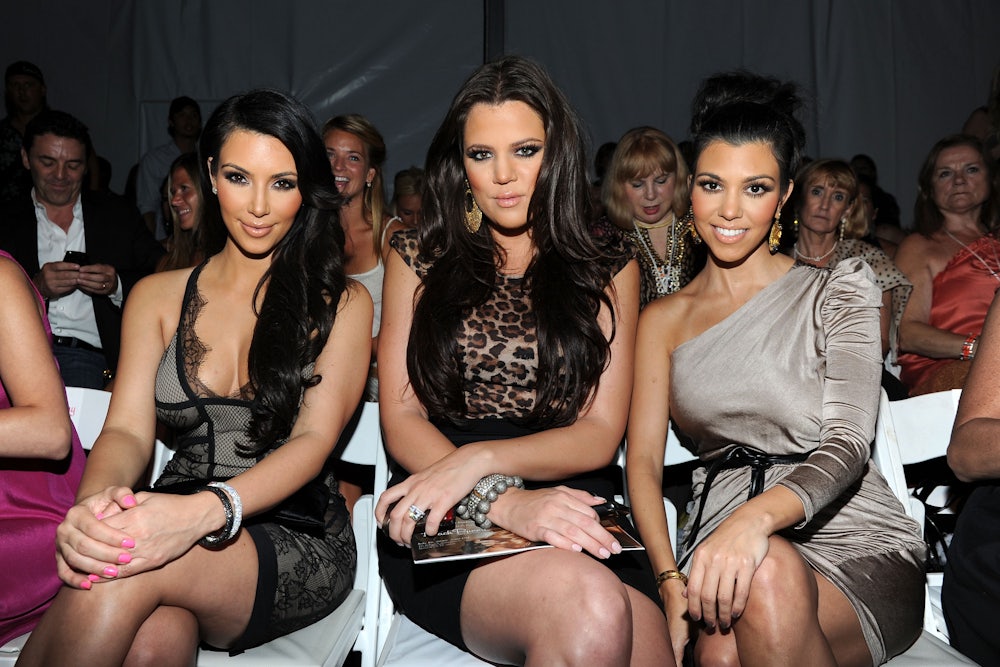According to The Huffington Post, Donald Trump criticized Khloe Kardashian’s weight during a 2009 taping of Celebrity Apprentice, before firing her from the show. He described her as a “piglet” and wondered aloud why the show couldn’t “get the hot one” (presumably a reference to Kim Kardashian West). Unfortunately, feelings about someone’s looks are not grounds for firing them, prompting Trump to ask his staff: “What’s the reason we can get her off [the show]?”
It’s the latest in what seems to be a never-ending nightmare of the ways Trump perpetuates and participates in a culture of misogyny. And it appears the apple doesn’t fall far from the tree. Yesterday, BuzzFeed reported that Donald Trump, Jr. suggested in 2013 that women who couldn’t deal with workplace harassment did not belong in the workplace to begin with. “If you can’t handle some of the basic stuff that’s become a problem in the workforce today, then you don’t belong in the workforce,” he said.
Seeming to forget that sexual harassment is, in fact, against the law, Trump, Jr. proceeded to make a joke about how women who report sexual harassment were merely involved in a get-rich quick scheme. If this sounds familiar, it’s because it is. This week, in response to the four women who came forward about being sexually assaulted by Donald Trump, the Republican presidential candidate and his camp were quick to question their motives. “Any reasonable woman would have come forward and said something at the time,” senior Trump adviser A.J. Delgado said on MSNBC’s All In with Chris Hayes.
Trump has a long, and increasingly well-documented, history of misogyny. His comments should not continue to surprise. What’s important here is that his son, the person he raised, holds these very same beliefs. This is an example of how sexism, if left unchecked, spreads. Trump, Jr.’s beliefs were not formed in a vacuum; they come from years of being taught that women are less valuable than men. As First Lady Michelle Obama said yesterday in her inspiring speech, it’s time that we, as a nation, have a serious conversation about what it actually means to be a woman in America.
